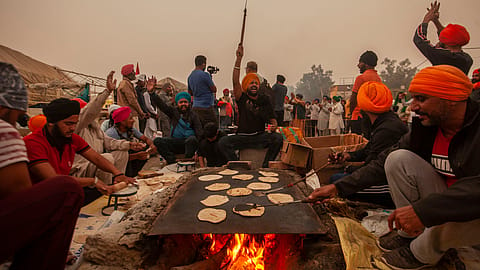Winter of discontent: Farmers intensify protest
Farmers, especially from the neighbouring states, have assembled near the Delhi border for a protest. Fortune India visited the epicentre to chronicle its growing intensity.

Since late November, scores of farmers, especially those hailing from the neighbouring states of Haryana and Punjab, have assembled near the Delhi border to take part in a protest, effectively sealing it off. These farmers are mainly protesting against three new farm laws that are meant to deregulate India’s vast, and at times knotty, agricultural sector.
Taken together, these three laws broadly loosen rules around sale, pricing, procurement, and storage of farm produce. Most contentious amongst these three bills is a provision under which private players would be allowed to buy produce from farmers directly, and at market prices.
At present, farmers usually sell their produce at government-controlled wholesale markets, on assured prices. Farmers fear that with market forces determining the prices now, the provision of minimum support price—which had served as a bulwark against unfair competition earlier, thereby acting as a kind of a buffer for farmers—would go away, leaving farmers at the mercy of private players—mainly large retailers and agriculture businesses.
The government, on its part, has argued that the farmers’ fears over these new rules are misplaced. And in order to assuage them, several rounds of talks between farmers' organisations and the Union government have occurred. The results have been inconclusive. The farmers have threatened to continue their agitation, and a nation-wide strike—or Bharat bandh—has been called on December 8.
The photo team of Fortune India visited the Singhu and Ghazipur borders adjoining Delhi—which are the epicentre of this agitation—in order to chronicle its growing intensity.